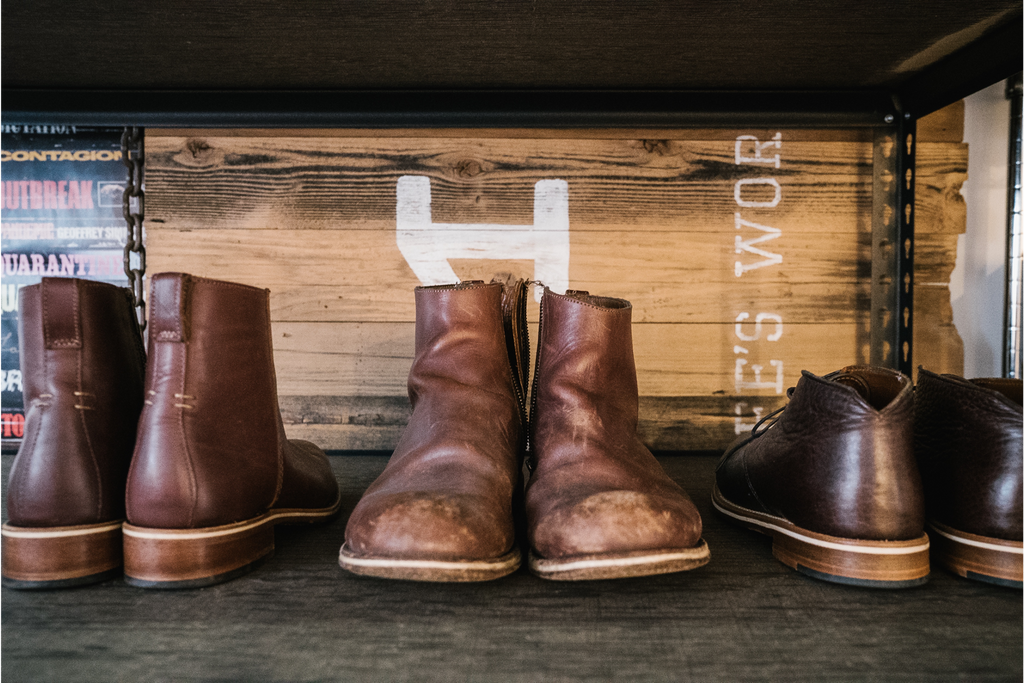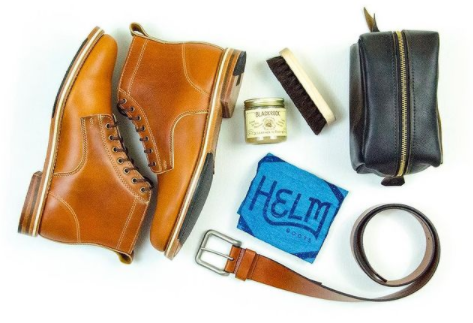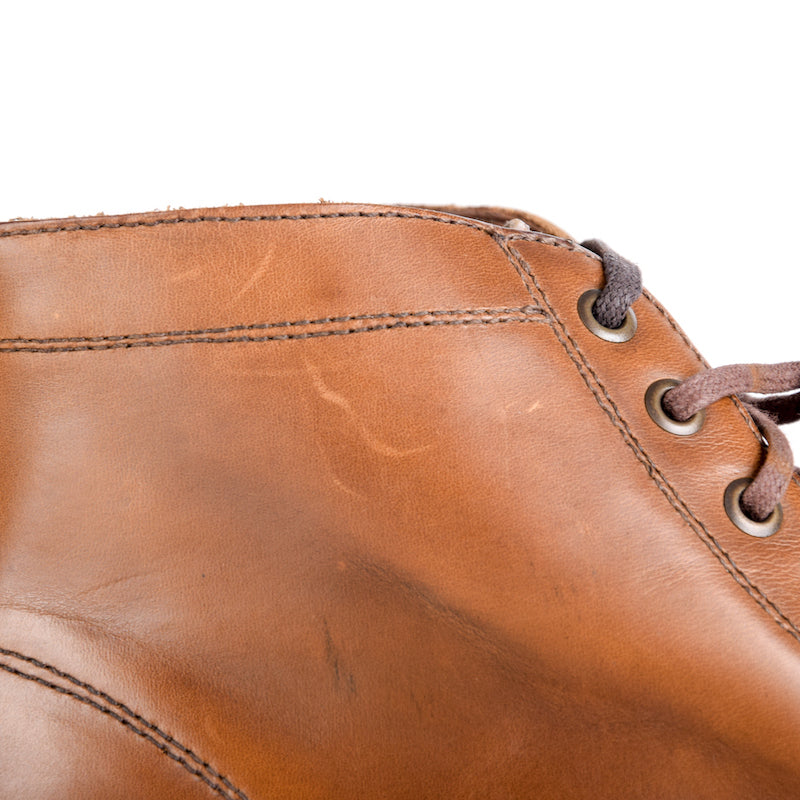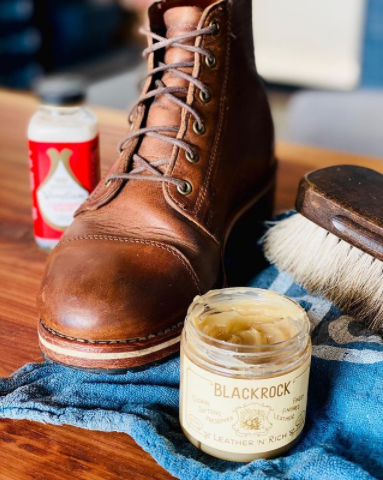When it comes to footwear, there are no shoes more stylish and versatile than leather boots. Leather boots have been the go-to footwear option for years, and they pair just as well with a t-shirt and jeans, as they do with formal pants and a blazer. They're a high-quality footwear option that offers long-lasting comfort, style, and use.
It's important to know though that not all leather boots are created equal. And with so many leather boot options available, it can be hard to know if you're picking the right ones for you. In this article, we'll cover the different types of boots and top brands so you can rest easy knowing you're strutting the streets in your best boots.
Different Types of Shoe Leathers
While leather boots can come in different shapes and designs, what really sets them apart is the leather they're made of. Leather is a catchall term as it encompasses an array of skins, tanning methods, and treatments. Here are the most common shoe leathers you'll find:
Roughout Leather
Roughout leather is the underside of a hide's grain, so the grain remains intact. It's a thick, full-grain leather that wears well and doesn't require a lot of maintenance. This boot is a popular military and mountaineer boot and offers a slightly more dressed-down style.
Veg-Tanned Leather
Veg-tanned leather is leather that was made from a tanning process involving vegetable matter and tree barks. It's stiff, naturally colored leather, although this leather naturally darkens over time. These boots are great for casual wear, but they can shrink and become brittle if they get wet.
Pull-Up Leather
Pull-up leather options have been heavily waxed and oiled, and their colors usually lighten when you pinch or pull-up on the leather. It's a low maintenance option that ages well because it absorbs scuffs and scrapes. These boots are a great casual shoe option that can be paired with business casual or everyday looks.
Suede
Genuine Leather
Genuine leather is the cheapest and lowest quality of the three leather types. It's usually found in belts and other leather products in a low-price range. This leather is usually made with several layers of leather that have been bonded together with glue.
Top-Grain Leather
Top-grain leather is the middle ground quality option for leather. It's used in most purses and also used for smaller leather goods like wallets. It's made by splitting a piece of full-grain leather and then sanding away any imperfections. It's not extremely durable or long-lasting, but it has a great finish color.
Full-Grain Leather
Full-grain leather uses the entire grain of hide, with the imperfections and toughness of the original leather. It's known as the best and highest-quality leather option, but it is significantly more expensive than the other two leather types. But it lasts a long time, so it's often worth the investment.
Where Does the Leather Come From?
Most boots use calfskin leather because it has a tighter grain and fiber than cowhide. Other types of animal leather include:
- Bovine leather (cowhide)
- Cordovan shell (horse)
- Pigskin (pig)
- Kidskin (goat)
It's important to know that shoes often use leather in the following places:
The outsole of the shoe
- The insole of the shoe
- The heel of the shoe
- The shoe upper (the rest of the shoe)
When exploring boot options, consider what parts of the boots are leather, what leather quality they are, and how they've been made.
How to Take Care of Your Boots
Leather boots are a financial investment, so it's important you take proper care of them to ensure long-lasting use.
Waterproof Your Boots
Leather is extremely susceptible to water damage, so if you don't waterproof your boots they'll stain, crack or wear out quickly. You should go about and buy waterproofing spray or wax leather sealant like Otter Wax, use it on your boots, and then let them dry overnight. And if your shoes do get wet, simply wipe them down, lay them flat, and let them dry overnight.
Clean Them Regularly
If you want to keep your shoes in good shape, make sure to clean them regularly. To do this, simply wipe your shoes with a damp cloth to clear the grime. If they get dirtier, just make sure you clean them immediately to avoid stains.
Store Them Properly
If you want your boots to last a long time, you need to store them the right way. You should keep them in a room-temperature space that isn't exposed to constant sunlight. If you don't, the boots' color could fade over time and the leather could shrink.













